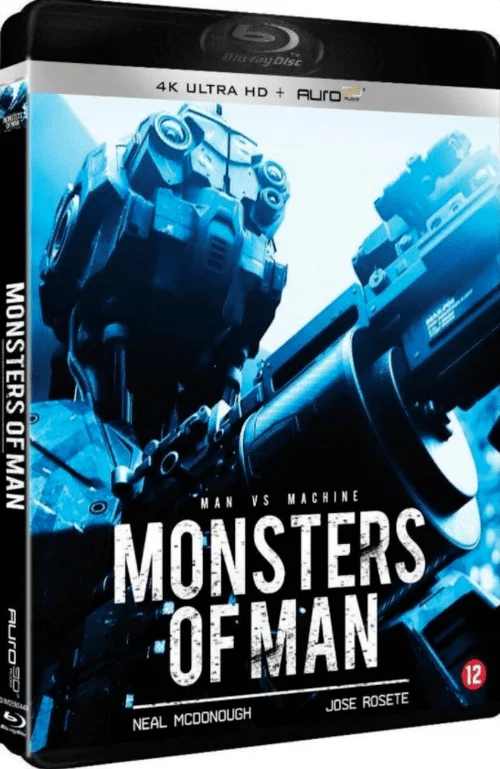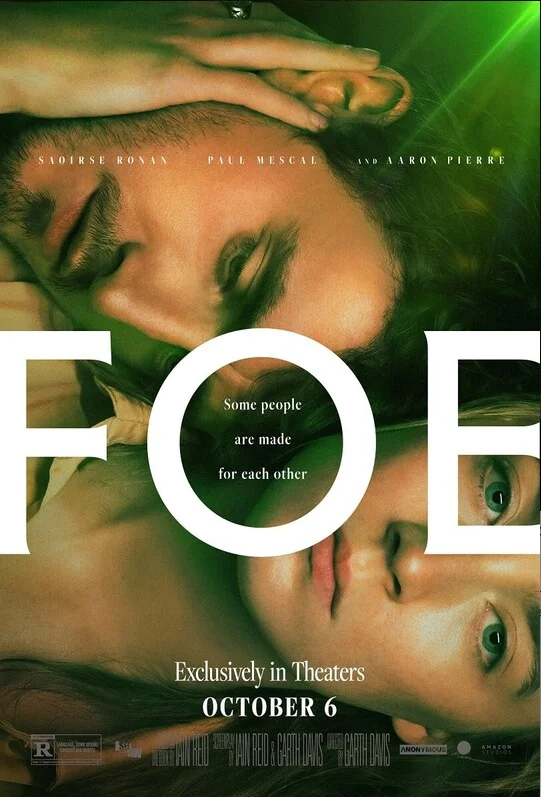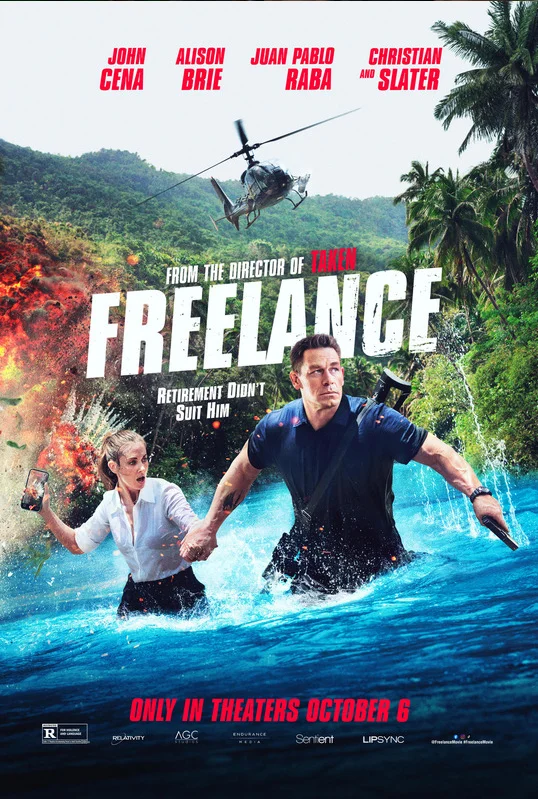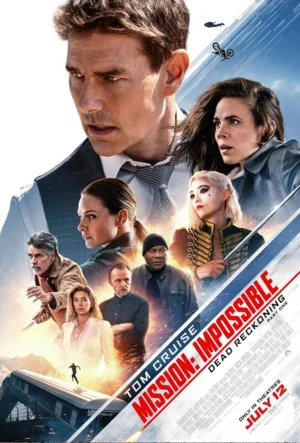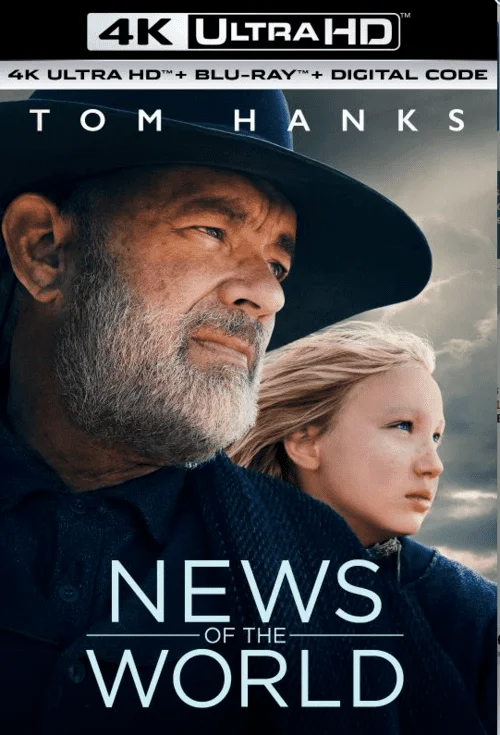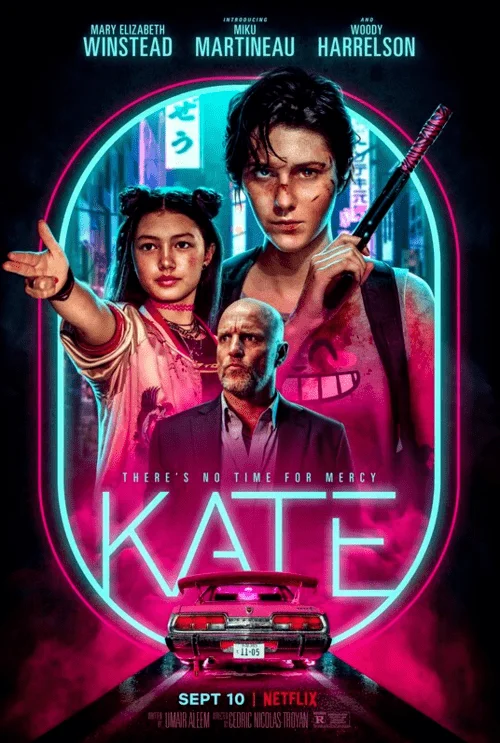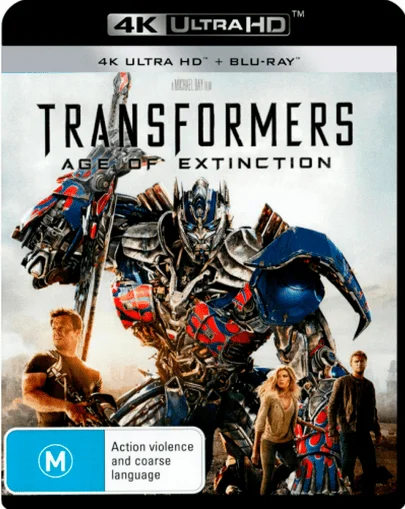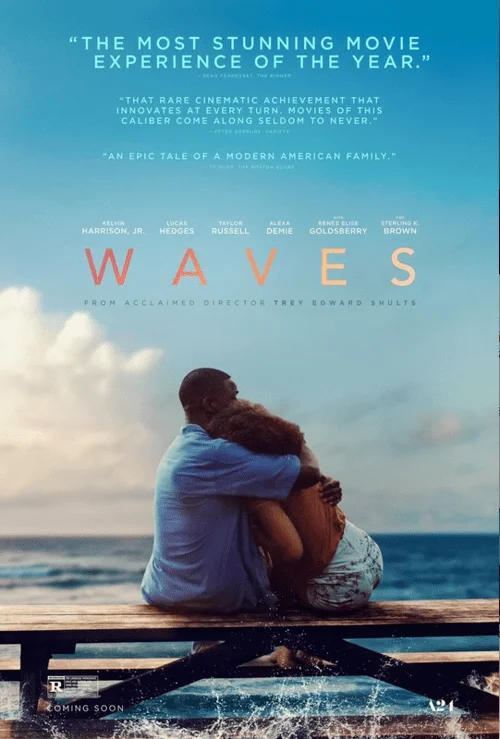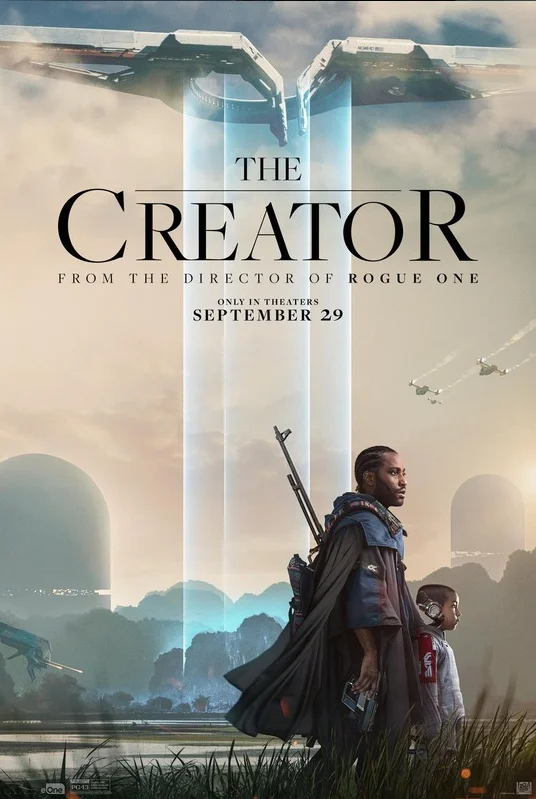
The Creator 4K 2023 2160p WEB-DL
Cast: John David Washington, Madeleine Yuna Voyles, Gemma Chan, Allison Janney, Ken Watanabe, Sturgill Simpson, Amar Chadha-Patel, Marc Menchaca, Robbie Tann, Ralph Ineson, Michael Esper, Veronica Ngo, Ian Verdun, Daniel Ray Rodriguez, Rad Pereira, Syd Skidmore, Karen Aldridge, Teerawat Mulvilai

A post-apocalyptic future. Soldier Joshua is in the midst of a war between humanity and artificial intelligence. The outcome of the confrontation may be decided by a girl with superpowers.
The Creator 4K Review
The year is 2065. Ten years have passed since a nuclear explosion in Los Angeles forced Western countries to go to war against intelligent machines. American Sergeant Joshua (John David Washington) is working undercover in New Asia, where imitators and robots are treated as equals. His goal is to get on the trail of the mysterious Creator of artificial intelligence. During the mission, Joshua becomes close to a local girl named Maya (Gemma Chan). The couple concludes their marriage and prepares to become parents. However, dreams of a family idyll are suddenly disrupted by a night raid by American special forces, after which pregnant Maya is presumed dead. Five years later, Joshua agrees to return to duty to help his compatriots find and destroy the Creator's new secret weapon. The task becomes more difficult when he realizes that the weapon is a little android girl (Madeline Yuna Voyles).
At the production stage, "The Creator" looked pretty promising. The idea to develop a plot around the confrontation between humans and artificial intelligence was not innovative, but more relevant than ever. In favor of the project spoke and its originality - a rare quality for modern film production, especially when it comes to blockbusters. The brainchild of British director Gareth Edwards clearly stood out: not a film adaptation, not a remake, not part of a franchise, not a spin-off or prequel. The movie was positioned as a unique auteur statement.
In theory, "The Creator" could have been an extraordinary work like one of the central characters - a one-of-a-kind android girl. At the output turned out, although spectacular, but a stamping - a faceless copy of the robot from the masses. All the individuality of the project was lost in an avalanche of references: from "Avatar" to "Blade Runner", from "Terminator" to "Star Wars", from "Child of Man" to "District 9", from "Artificial Intelligence" to "Apocalypse Now". In the end, all that's left of the original idea are the schematics. Blockbuster is overloaded with borrowings and brings nothing new to the genre.
The director of the film Gareth Edwards ("Godzilla", "Outcast One: Star Wars: A Star Wars Story"), along with co-writer Chris Weitz, fantasizes about the future in the context of the impact of technology on human life. However, the movie doesn't always manage the depth of exploration, falling apart structurally and falling through plot holes. The question of what it means to be human is a tired cliché. The pathos dialogs sound unconvincing, and the connection between the protagonist and the android child is too far-fetched. Hans Zimmer's music seems to try to compensate for the lack of clear lyrics, but it doesn't always succeed in creating the right atmosphere.
In the end, the very approach to the theme seems too superficial and sentimental. The authors try to manipulate the feelings of the audience, now and then throwing themselves into cheap drama. It turns out, it must be said, with mixed success. However, by the end of the movie you still manage to squeeze out tears: at the moment of touching farewell of the heroes it is difficult to remain indifferent, only robots programmed for lack of empathy can not be touched. In the universe of the movie, if such machines exist, they are not particularly interesting to the creators. All the attention of the authors is occupied by the society of androids-imitants, which in one way or another can feel feelings. Machines are more human than people - one of the main messages of the picture. The project advocates AI as if the script was written by ChatGPT.
Often a secondary script is a judgment, but not in the case of "The Maker." While Edwards may not be strong at creating emotionally crafted text, he is undeniably good when it comes to the visuals. Compositionally, the movie looks better than many modern blockbusters. And this is provided that the production of the picture spent only 80 million dollars - by today's standards it is nothing, for similar Hollywood projects goes twice, or even three times more. For the sake of budgetary savings authors had to abandon the use of green screen and large-scale scenery. Instead, the film crew led by Edwards and the operator of "Dune" Greg Fraser traveled around the world and filmed on location. Computer graphics were overlaid on top of the footage. The result was an expressive picture with impressive panoramas and curious visual effects. Although from the content point of view "The Creator" has nothing interesting to offer, the high-quality video sequence smooths out many, if not all, of its shortcomings.
File size: 23.4 GB
Trailer The Creator 4K 2023 2160p WEB-DL
Latest added movies
Comments on the movie
Add a comment
 like
like do not like
do not like
